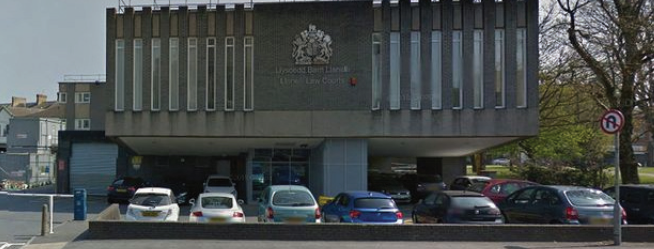THE NUMBER of child cruelty and neglect cases recorded by police in Wales has risen by 53% in the last year, the NSPCC reveals today.
The charity’s annual child protection review – How Safe are our children? – shows parents or carers were reported in connection with 415 offences in 2014-15 compared to 272 in 2013-14.
The increase in recorded cases is reflected in the number of calls made to the NSPCC helpline about children suffering neglect. Last year there were over 16,000 contacts to the UK-wide helpline.
Adults called with fears about children who were hungry and dirty, while other contacts reported parents who were drunk or left their children to fend for themselves.
Research has proven that emotional neglect, where children are ignored and not given the love they need, is increasingly becoming more common.
Neglect remains the most common reason for a child to be placed on the child protection register (CPR) in Wales, with 40 per cent of registrations at 31 March 2015.
In a bid to tackle neglect NSPCC Cymru was commissioned by the Welsh Government to deliver the Welsh Neglect Project. The project aimed to improve multi-agency responses and services for neglected children and their families.
The children’s charity is now calling for an enhanced health visiting service and family support programmes to ensure children’s needs are met and address issues early.
Des Mannion, head of NSPCC Cymru / Wales, said: “It is always worrying when statistics show cruelty and neglect offences are increasing, although one reason could be that the police, public and professionals are better at recognising the various forms of neglect.
“Neglect remains the most common reason for a child to be placed on the child protection register and is still an under-recognised and under-reported issue that often doesn’t come to the attention of police and social services. This means that the number of children suffering from abuse and neglect could be far higher.”
Peter Wanless, CEO of the NSPCC, said: “Neglect is the most common form of abuse in the UK and can wreak havoc on a child’s brain development, emotional well-being, ability to form relationships, and mental health. These children are more likely to suffer from depression and post-traumatic disorder, and even suicidal thoughts. For some, neglect can be fatal.
“These levels of neglect simply do not belong to the 21st century. It’s an unacceptable situation which must be remedied. And we can only do that by looking out for vulnerable children and making sure that they are given the right support to prevent longer term damage.”
It’s unclear why the recorded cases have risen so dramatically, but greater public awareness and improvements in how police record offences could be factors.
The most likely cause is that more children who are experiencing cruelty and neglect are now being identified, particularly now that emotional neglect is better recognised and the Serious Crime Act 2015 was changed to include psychological harm
One 14-year-old boy who called the NSPCC’s ChildLine service said: “I know it sounds disgusting but sometimes I feel like eating pet food because it’s all there is in the house. But I just drink water to make me feel full- up instead. My teacher has asked why I’m dressed in dirty clothes and why I never have any lunch money and I don’t know what to say. I feel angry at my parents because they don’t seem to care how miserable it’s making me. If I ask them for anything they become really angry and hit me. Sometimes I feel killing myself will be the only way out.”
Another 13-year-old told how he was forced to steal because he was so hungry: “My mum goes out every weekend to the pub. She doesn’t seem to care about me or my brother. There is never any food at home and when we ask for something to eat she gives us cereal. I’m always feeling tired and can’t concentrate – I only ever think about food when I’m at school. Sometimes I steal packed lunches from the other kids because I know I probably won’t get anything at home. I don’t know if my life will ever change but I can’t live like this anymore.”
The NSPCC is running a campaign – It’s Time – which is calling for all child victims of abuse to be given timely, appropriate therapy to help them overcome their traumatic experience and rebuild their lives.



















Add Comment